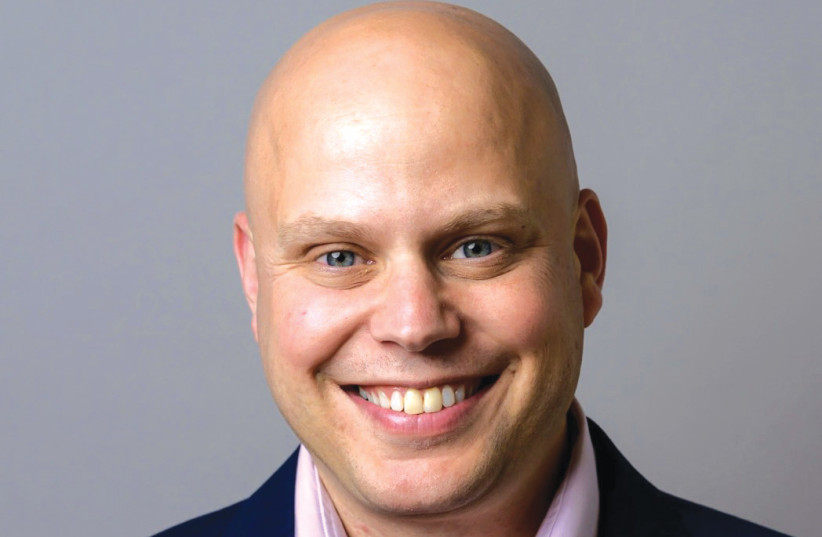“Everything we do,” says Robert Singer, chairman of Alumot Or, “is directed at looking at the individual – not their limitations. We are not trying to ‘fix’ them. The individual is at the center.”
This philosophy guides Alumot Or (“Rays of Light”), an Israeli philanthropic social organization founded in 2015 that promotes and implements innovative projects and programs in special education schools in Israel. Alumot Or helps develop the dignity and self-worth of those with disabilities and works to expand the rights of special education students to quality, equitable, and inclusive education.
Since its inception, the organization has supported hundreds of students in special education in 15 educational centers throughout Israel, seven of which carry the name of the late Benjamin Rothman. A new agreement was recently signed with the Kiryat Shmona Municipality to establish an eighth Benjamin Rothman Educational Center.
Dr. Mina Raz, Ph.D., who is Alumot Or’s “Transition to Adulthood Specialist,” explains that the transition to adulthood for students with disabilities can be particularly difficult. “The passage from childhood to adulthood is a two-stage process,” she explains. “Adolescence goes from age 12 until 18, and what is known as ‘emerging adulthood’ begins at age 18 and continues until approximately age 29.”
An opportunity to experience life
For young adults who do not have special educational needs, emerging adulthood is an opportunity to experience life, learn more about themselves, establish their identity and decide what they want to do in life. Based on their experiences of work, travel, and study from age 18 until 29, they will make the choices that will impact the rest of their lives. Young people without disabilities have eleven years to spend in “self-exploration” by experiencing a variety of life situations that help them gradually shape their adult lives.

By contrast, young adults with disabilities, in order to receive the assistance and support they deserve regarding work, IDF military service, housing, and leisure, have to make decisions about their future at a much earlier age, after they have finished high school, between the ages of 18 and 21, when they haven’t experienced almost anything of life to that point. “Those with disabilities do not have this luxury,” says Raz. “They must decide what they want to do – if they will work, or where they will work, for example – at a much younger age. The tragedy is that they really don’t understand themselves yet. They have been studying in a separate program, and all that they really know is the school program where they have spent so much time. They will have to make decisions at an earlier age, with less knowledge about themselves.” These individuals, says Raz, are victims of what she terms “the abbreviated transition paradox.”
In many cases, she says, the parents of children will make the decisions, and while they have the best interest of their child in mind, they may not know what their child wants.
The most challenging circumstances in evaluating and planning for the future needs of students with disabilities, says Raz, is with those students who cannot express themselves verbally, such as students with autism. “Self-determination is the most important thing for students with disabilities. How do we accomplish this with students who cannot express themselves?” she asks.
Raz adds that while special education schools and classes in Israel attempt to prepare students for their adult lives, they are frequently unaware of the available options. She points out that the subject of programs for those with disabilities has not been extensively researched in Israel in recent years. The issue of what students with disabilities can do when they have completed the educational system concerns parents and children alike, she adds.
Alumot Or, explains Raz, assists educational teams in building programs that help prepare students with disabilities for adulthood. “We set up transition programs that are based on evidence-based practice that has been gathered, and we create models and programs based on research.”
Practical tools for guiding teens into adulthood
She adds that Alumot Or provides educators with up-to-date information that provides practical tools for guiding teens with disabilities into adulthood. For example, Raz says that integration into employment while studying in high school is very significant and is a good predictor for success once the student has completed their studies. Alumot Or is also building tools that can evaluate the success of these preparatory programs.
Raz is currently working with several schools, designing a multi-year study program on subjects that are important in enabling students with disabilities to help transition into the adult world. One of the most important skills, she says, is self-determination, which is the ability to choose and make decisions about one’s life. “We are building a program to promote self-determination that begins in the primary grades for individual students, classes, and teachers.”
In addition, Alumot Or has developed computerized folders that contain up-to-date information about students and their progress, which provides a common language in multi-professional teams and is helpful in times of staff turnover.
Adv. Ziv Magor, director general of Alumot Or says, “We are building the foundations of how to look at students with disabilities, how to work with them, and what to emphasize. We are helping to bring the future into the present,” he says. “We are focused on getting results, using all of the information that is present today.”
Magor concludes that the benefits of Alumot Or’s work in assisting special education students with their entry to adulthood extend beyond the schools served by the organization. “All students with disabilities, whether they are in separate schools for special education, or are in schools where they are mainstreamed into the regular student body, deal with this issue, and the development and work of Alumot Or will serve the entire population of special education students in Israel.”
The story was written in cooperation with Alumot Or.
